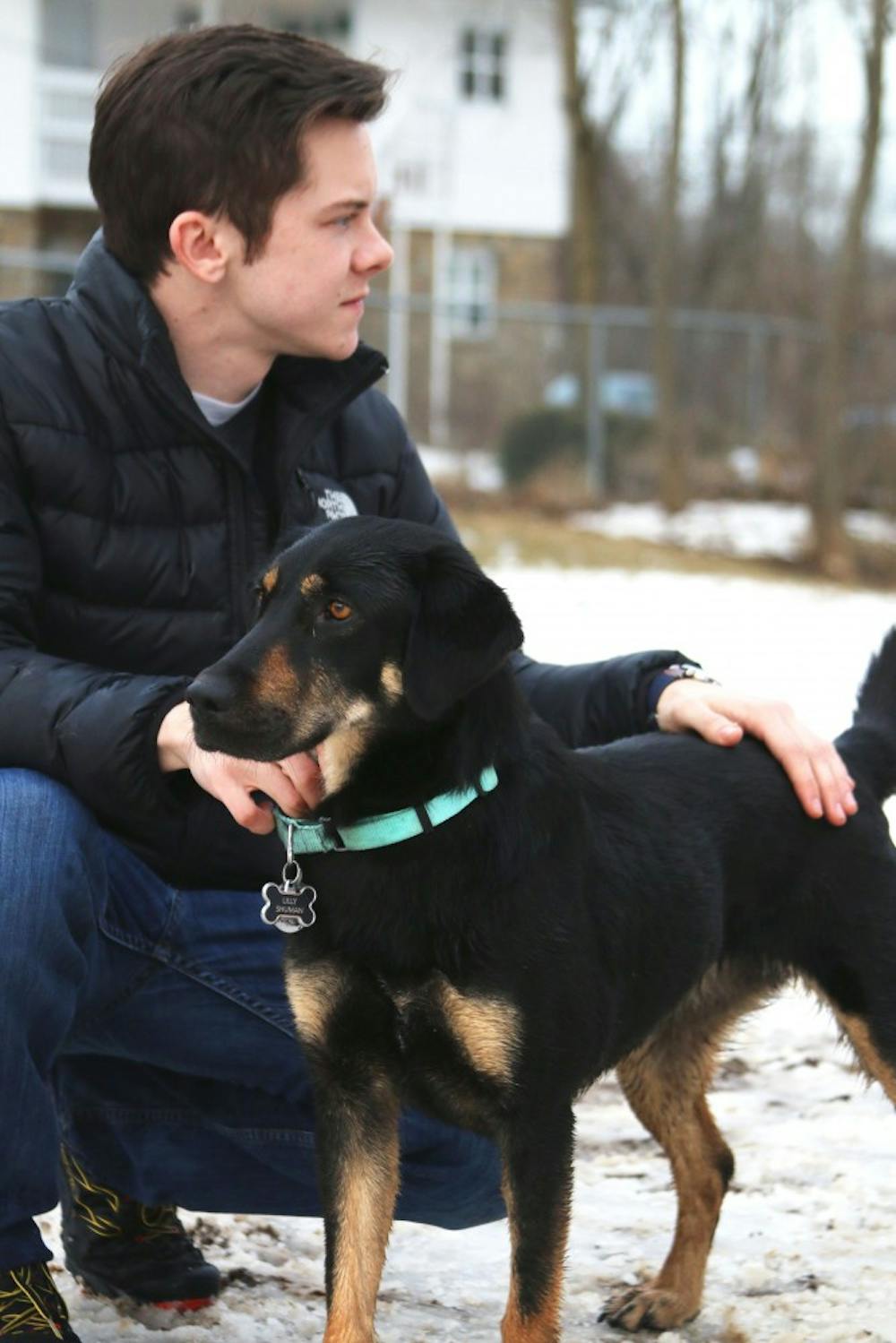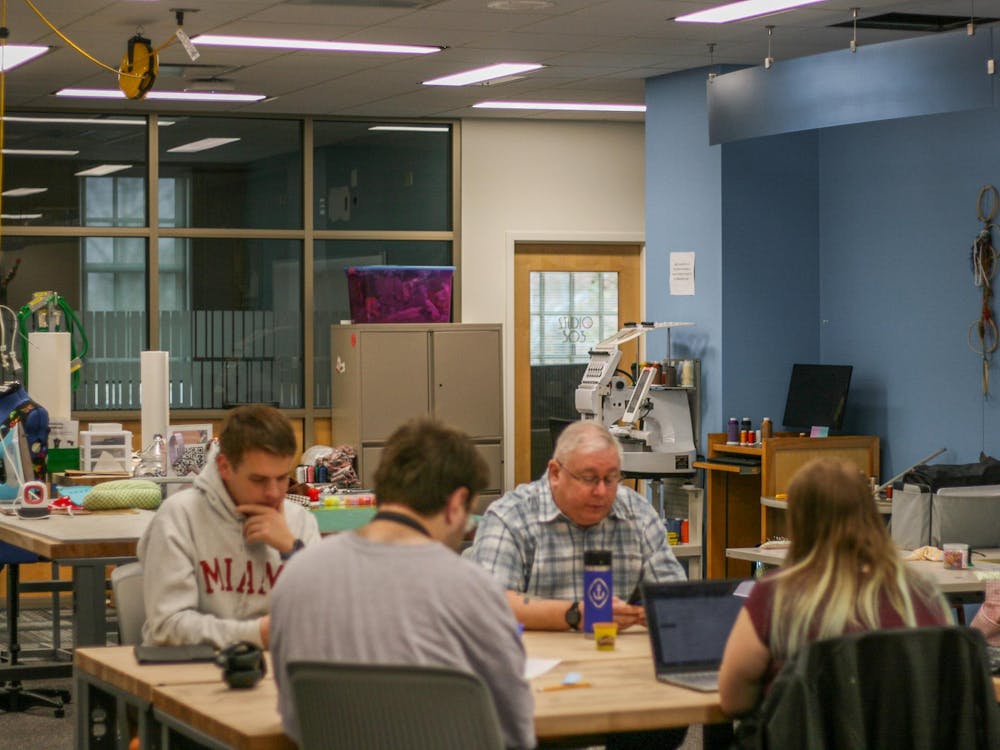After about 20 minutes, I felt my fragile sense of calm begin to dissipate, and the world around me started to spin. I fought back a bout of nausea and fumbled to get my phone from my pocket. Dialing, I put the phone to my ear, still scanning the woods and listening for the jingle of her collar.
"Hey, I'm down at the trails. Do you have a car? Can you get down here? I can't find Lilly."
***
I think one of the most common misconceptions about anxiety is that it's purely mental.
Sure, when I'm feeling anxious -- which is about the same as saying when I'm awake -- the majority of what I'm experiencing can be described as a sort of mental hyperdrive: racing thoughts, a brutal, paranoid awareness of what others are thinking about me, a pit-in-my-stomach sensation that something dreadful lies constantly around the corner. My mind is continuously imagining worst-case scenarios, and regardless of how infrequently those situations become reality (read: virtually never), it's preparing me for the inevitable shame of the moment my world becomes my worst nightmare.
Even though the root of this lies in a toxic thought pattern -- even though generalized anxiety is literally a "mental illness" -- it often manifests itself physically. In my most anxious moments, I feel short of breath, like there's a dumbbell on my chest and I need to struggle to pull in any air. I sometimes get hot and sweaty. My hands shake. Worst of all, I feel on edge, like there's so much to keep straight in my mind that I can't even sit still. This is what makes it hard sometimes to get started on an essay or a project for class -- when all I can think about is how much I have to do and how little time I have, my mind struggles to focus on what I need to do most, which is just get started.
This punishing, on-edge sensation is exactly what I felt last Friday as I pulled away from my friends' apartment and drove down Route 27 toward Cincinnati. It stayed with me as I parked at CVG, went through airport security, grabbed a bite to eat at the Max & Erma's in Terminal B and finally boarded my flight.
Lilly, you see, was no longer with me.
With plans to fly home to Boston for the weekend to surprise my mom for her birthday, I was faced with two options: Go through the difficult and expensive process of getting Lilly registered to fly, or leave her in Oxford for 48 hours.
Practically speaking, the latter was possible -- I have lots of responsible friends who would be more than willing to watch over her for a weekend. What I was worried about was Lilly's separation anxiety. Lilly and I share our nervous approach to the world, and while we certainly help each other cope (what's better for calming down than a doggy cuddle?), she doesn't do so well when I'm not around. This is a dog, mind you, that jumps on me in excitement when I return to the house after leaving for 30 seconds to grab the groceries from the car; a dog that, on multiple occasions, has pulled my comforter through her cage while I'm in class and torn it to shreds. How was she going to fare with me gone for two whole days?
The answer, surprisingly, was quite well.
She struggled a bit, which was to be expected. She refused to eat much, for instance, and on several occasions she indicated to her sitters that she needed to use the bathroom, only to bring them out into the pouring rain for nothing.
Enjoy what you're reading?
Signup for our newsletter
But all in all, when I returned on Sunday, I learned that there had been no intense panic attacks, no signs of extreme anxiety.
I, on the other hand, found myself attacked by a constant stream of worrisome thoughts: What if she thinks I abandoned her? What if every time the door opens she thinks it's me and then gets her world crushed when it's not? What if she doesn't recognize me when I get back?
Like most of my anxiety-fueled imagainings, however, those worries existed only in my head. Despite my mind's efforts to convince me otherwise, the separation did not ruin us. We're perfectly fine -- in fact, her head is resting on my thigh as I write this.
Sometimes, though, worries aren't unfounded. Sometimes, bad things do happen. Sometimes, for instance, your dog runs into the woods on the Oxford trails, and when you whistle for her to come back -- a command she always responds to -- she keeps running.
And before you know it, she's gone.
***
"Ok. When was the last time you saw her?"
Alison, who I'd called in a panic, was doing what I had now failed to do -- namely, keep calm. She was thinking logically, asking me to retrace my steps. All I could think of was the fact that if I couldn't find her, Lilly was going to be spending the night out here in the woods, alone, wondering why I had abandoned her.
"Like, 20 minutes ago." I could hear the crack of my own voice. "She ran off the trail, which she does sometimes, and I called for her to come back, but she just kept going. I don't --"
And suddenly, there she was, bounding down the trail toward me, her tongue way out to the side of her jaw.
I wanted to do a lot of things. I wanted to cry and scream at her, to tell her to never, ever, do that again. I wanted to bring her back to the house and never let her out of my sight again. I wanted to call my mom and apologize for that one time I hid behind the vending machine at the YWCA when I was four and sent her into a similar frenzy.
But at that moment, all I did was wrap Lilly in my arms, hug her tight and let her warm presence remind me that everything was going to be okay.
shumandb@miamioh.edu




